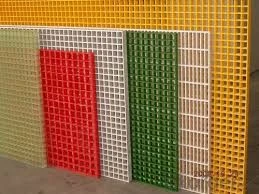
-
 Afrikaans
Afrikaans -
 Albanian
Albanian -
 Amharic
Amharic -
 Arabic
Arabic -
 Armenian
Armenian -
 Azerbaijani
Azerbaijani -
 Basque
Basque -
 Belarusian
Belarusian -
 Bengali
Bengali -
 Bosnian
Bosnian -
 Bulgarian
Bulgarian -
 Catalan
Catalan -
 Cebuano
Cebuano -
 China
China -
 China (Taiwan)
China (Taiwan) -
 Corsican
Corsican -
 Croatian
Croatian -
 Czech
Czech -
 Danish
Danish -
 Dutch
Dutch -
 English
English -
 Esperanto
Esperanto -
 Estonian
Estonian -
 Finnish
Finnish -
 French
French -
 Frisian
Frisian -
 Galician
Galician -
 Georgian
Georgian -
 German
German -
 Greek
Greek -
 Gujarati
Gujarati -
 Haitian Creole
Haitian Creole -
 hausa
hausa -
 hawaiian
hawaiian -
 Hebrew
Hebrew -
 Hindi
Hindi -
 Miao
Miao -
 Hungarian
Hungarian -
 Icelandic
Icelandic -
 igbo
igbo -
 Indonesian
Indonesian -
 irish
irish -
 Italian
Italian -
 Japanese
Japanese -
 Javanese
Javanese -
 Kannada
Kannada -
 kazakh
kazakh -
 Khmer
Khmer -
 Rwandese
Rwandese -
 Korean
Korean -
 Kurdish
Kurdish -
 Kyrgyz
Kyrgyz -
 Lao
Lao -
 Latin
Latin -
 Latvian
Latvian -
 Lithuanian
Lithuanian -
 Luxembourgish
Luxembourgish -
 Macedonian
Macedonian -
 Malgashi
Malgashi -
 Malay
Malay -
 Malayalam
Malayalam -
 Maltese
Maltese -
 Maori
Maori -
 Marathi
Marathi -
 Mongolian
Mongolian -
 Myanmar
Myanmar -
 Nepali
Nepali -
 Norwegian
Norwegian -
 Norwegian
Norwegian -
 Occitan
Occitan -
 Pashto
Pashto -
 Persian
Persian -
 Polish
Polish -
 Portuguese
Portuguese -
 Punjabi
Punjabi -
 Romanian
Romanian -
 Russian
Russian -
 Samoan
Samoan -
 Scottish Gaelic
Scottish Gaelic -
 Serbian
Serbian -
 Sesotho
Sesotho -
 Shona
Shona -
 Sindhi
Sindhi -
 Sinhala
Sinhala -
 Slovak
Slovak -
 Slovenian
Slovenian -
 Somali
Somali -
 Spanish
Spanish -
 Sundanese
Sundanese -
 Swahili
Swahili -
 Swedish
Swedish -
 Tagalog
Tagalog -
 Tajik
Tajik -
 Tamil
Tamil -
 Tatar
Tatar -
 Telugu
Telugu -
 Thai
Thai -
 Turkish
Turkish -
 Turkmen
Turkmen -
 Ukrainian
Ukrainian -
 Urdu
Urdu -
 Uighur
Uighur -
 Uzbek
Uzbek -
 Vietnamese
Vietnamese -
 Welsh
Welsh -
 Bantu
Bantu -
 Yiddish
Yiddish -
 Yoruba
Yoruba -
 Zulu
Zulu
Fiberglass Piping Systems and Components for Marine Vessel Construction and Design
The Role of Fiberglass Pipes and Fittings in Shipbuilding
In the ever-evolving field of shipbuilding, the choice of materials is crucial for both the performance and longevity of marine vessels. One material that has gained prominence in recent years is fiberglass reinforced plastic (FRP), particularly in the form of pipes and fittings. This article explores the advantages and applications of fiberglass pipes and fittings in shipbuilding, highlighting why they have become a popular choice among shipbuilders.
Durability and Resistance
One of the most significant benefits of fiberglass pipes and fittings is their unparalleled durability. Unlike traditional materials such as steel or concrete, fiberglass is resistant to corrosion, making it ideal for marine environments. Ships are exposed to salty water and humid conditions, which can significantly degrade other materials over time. Fiberglass pipes can withstand harsh chemicals and are less likely to succumb to rust or degradation, ensuring a longer service life for marine applications.
Lightweight Characteristics
Weight plays a critical role in the design and construction of ships. Reducing the overall weight can lead to improved fuel efficiency and increased cargo capacity. Fiberglass pipes are approximately one-quarter the weight of steel pipes, making them a lightweight alternative. This helps in achieving a more efficient design without sacrificing strength or durability. The lightweight nature also facilitates easier handling and installation, ultimately speeding up the construction process.
Design Flexibility
Another notable advantage of fiberglass pipes and fittings is their design flexibility. Fiberglass can be molded into complex shapes and sizes, allowing engineers to create bespoke solutions for specific marine applications. This versatility can lead to innovative designs that are not only functional but also enhance the aesthetic appeal of a vessel. Custom-designed fittings can ensure that systems operate seamlessly, reducing the likelihood of leaks and maintenance issues.
fiberglass pipes and fittings for ship building

Cost-Effective Solution
While the initial cost of fiberglass pipes may be higher than traditional materials, their long-term benefits can lead to significant cost savings. The advanced longevity, reduced maintenance needs, and improved energy efficiency can result in lower total lifecycle costs. Additionally, the use of fiberglass can minimize downtime for repairs and replacements, which can be a substantial cost factor in the maritime industry.
Environmentally Friendly
As industries globally move towards sustainability, fiberglass pipes and fittings also offer an environmentally friendly option. They are often made from recycled materials and can be recycled themselves at the end of their lifecycle. Moreover, the energy efficiency associated with the lightweight nature of fiberglass contributes to reduced emissions during operation, aligning with the maritime industry's goals for greener practices.
Applications in Shipbuilding
Fiberglass pipes and fittings are employed in various applications within shipbuilding. They are commonly used for water management systems, waste systems, fuel delivery, and cooling systems. Their inherent properties, such as pressure tolerance and thermal insulation, make them suitable for these demanding applications. Additionally, they can be integrated into both new builds and retrofitted into existing vessels, showcasing their adaptability.
Conclusion
The adoption of fiberglass pipes and fittings in shipbuilding represents a significant advancement in material science and engineering. Their durability, lightweight characteristics, design versatility, and cost-effectiveness make them an ideal choice for modern vessels. As the maritime industry continues to evolve, the integration of advanced materials like fiberglass positions shipbuilders to meet the challenges of efficiency, sustainability, and performance. As such, the future of shipbuilding will likely see an increasing reliance on innovative materials that enhance the overall functionality and resilience of marine crafts.









